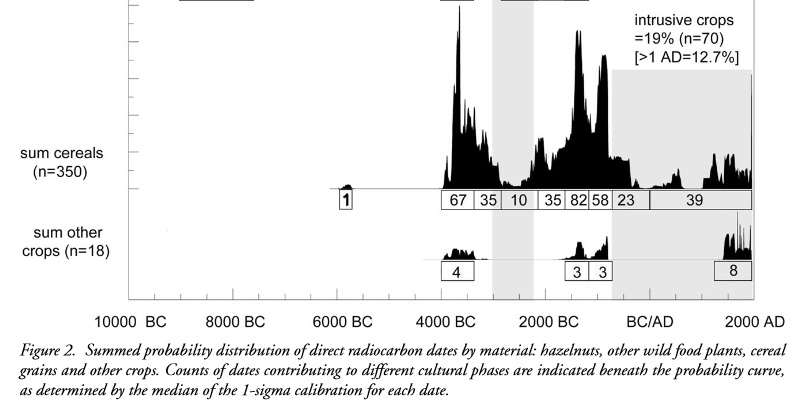It has been suggested to me more than once by amateur historians on forums, that before 1500 BC the Britons only kept livestock and didn't grow crops at all.
For example, AskHistorians on Reddit:
It's worth noting that agricultural practices changed quite significantly over the course of the Bronze Age in Britain. As argued in a recent Antiquity paper, in the early Bronze Age people seem to have been doing almost no farming at all, instead falling back on foraging and pastoralism. In 1103 BCE (oh you and your dates), i.e. the Middle/Late Bronze Age, it was coming back into fashion and several new crops were introduced: spelt wheat, peas and beans. The latter two are both incredibly useful nitrogen-fixing plants which we know were essential to later agricultural practices in Britain (e.g. the Medieval three-field system), so it may be that introducing them helped the second wave of farmers to overcome the problem of soil deterioration and practice more intensive agriculture.

